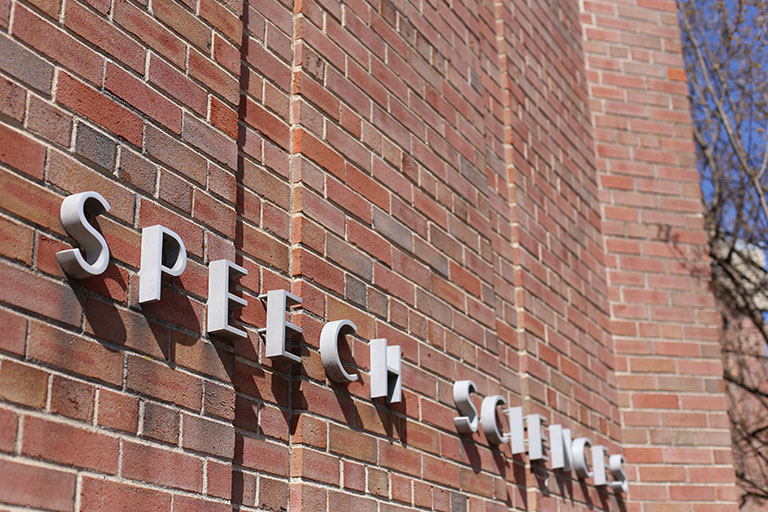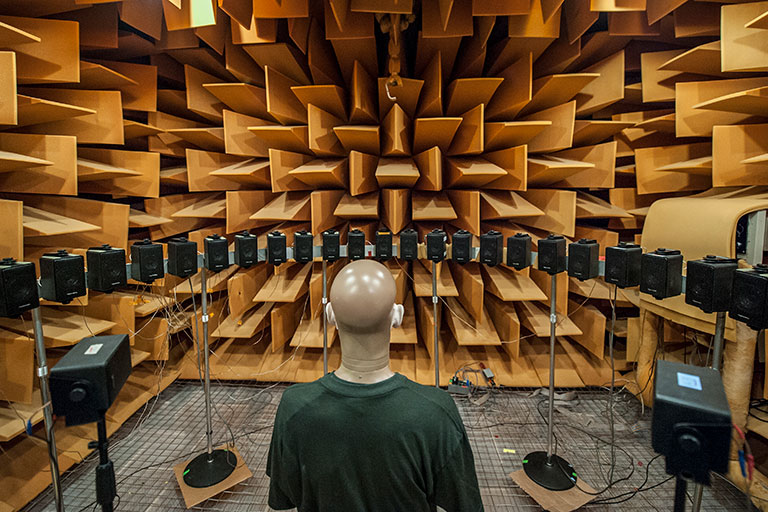Bachelor of Science in Communicative Sciences and Disorders
The Major in Communicative Sciences and Disorders trains students in the understanding of both normal and disordered aspects of speech, language, hearing, and swallowing. The major is designed to equip students with knowledge and emerging skills for the diagnosis and treatment of communication disorders. Primary areas of emphasis are placed on critical thinking and understanding of scientific inquiry as it relates to communication disorders. Students in the major will also learn and practice oral and written communication skills, develop as a reflective learner, and demonstrate growth in professional communication skills.
An additional area of emphasis for student learning is understanding issues of diversity, inclusion, equity, and ethical practice within the field of communicative sciences and disorders. Collaboration, teamwork, and interprofessional knowledge and skill development are critical areas of focus for students in the major to prepare them to effectively contribute to the profession of communicative sciences and disorders and to society at large.
- Summarize and explain core concepts and terms
- Apply fundamental theories in communicative sciences to situations of normal and disordered communication
- Find and assess the strength of scientific literature regarding normal and disordered communication
- Explain evidence-based practice (EBP) and demonstrate emerging ability to apply EBP to scenarios in the field
- Demonstrate critical thinking by developing, presenting, and defending case presentations or analyses of foundational theories
- Explain core concepts regarding characteristics of tests and instruments used in the field of communicative sciences and disorders
- Summarize or explain basic statistical concepts
- Demonstrate competence in written communication skills
- Demonstrate competence in oral communication and presentation skills
- Identify and describe characteristics of reflective learners and practitioners
- Explain dimensions of health and disability in terms of function, impairment, activity limitations, and participation restrictions
- Describe how culture, sex, gender, gender identity, ethnicity, age, economic power and other issues of diversity and inclusion impact communication and practices
- Identify ways to detect implicit biases and describe steps to begin interrupting biases in order to address the needs of diverse populations
- Identify and demonstrate the ability to access sources of information and guidance regarding ethics
- Explain and apply fundamental ethics concepts to situations
- Define and distinguish interprofessional education and practice from other education and service delivery models
- Identify and define core competencies for interprofessional practice and discuss application of these competencies
- Describe the roles of other professionals (education, healthcare) who are likely to work with individuals in the field of communicative sciences and disorders
- Identify and describe skills that important for building effective teams to research and serve the needs of people with communicative disorders
- Demonstrate emerging development of effective team skills through participation in team-based activities
Majors will commonly pursue graduate degrees in speech-language pathology or audiology. The knowledge and skills acquired in the major can also serve as preparation for other graduate degree programs or for careers in educational, healthcare, and business settings that value scientific training, strong communication skills, and the ability to work collaboratively.
Possible Careers
- Speech-Language Pathologist
- Audiologist
- Speech Scientist
- Hearing Scientist
- Work with special needs children or adults

